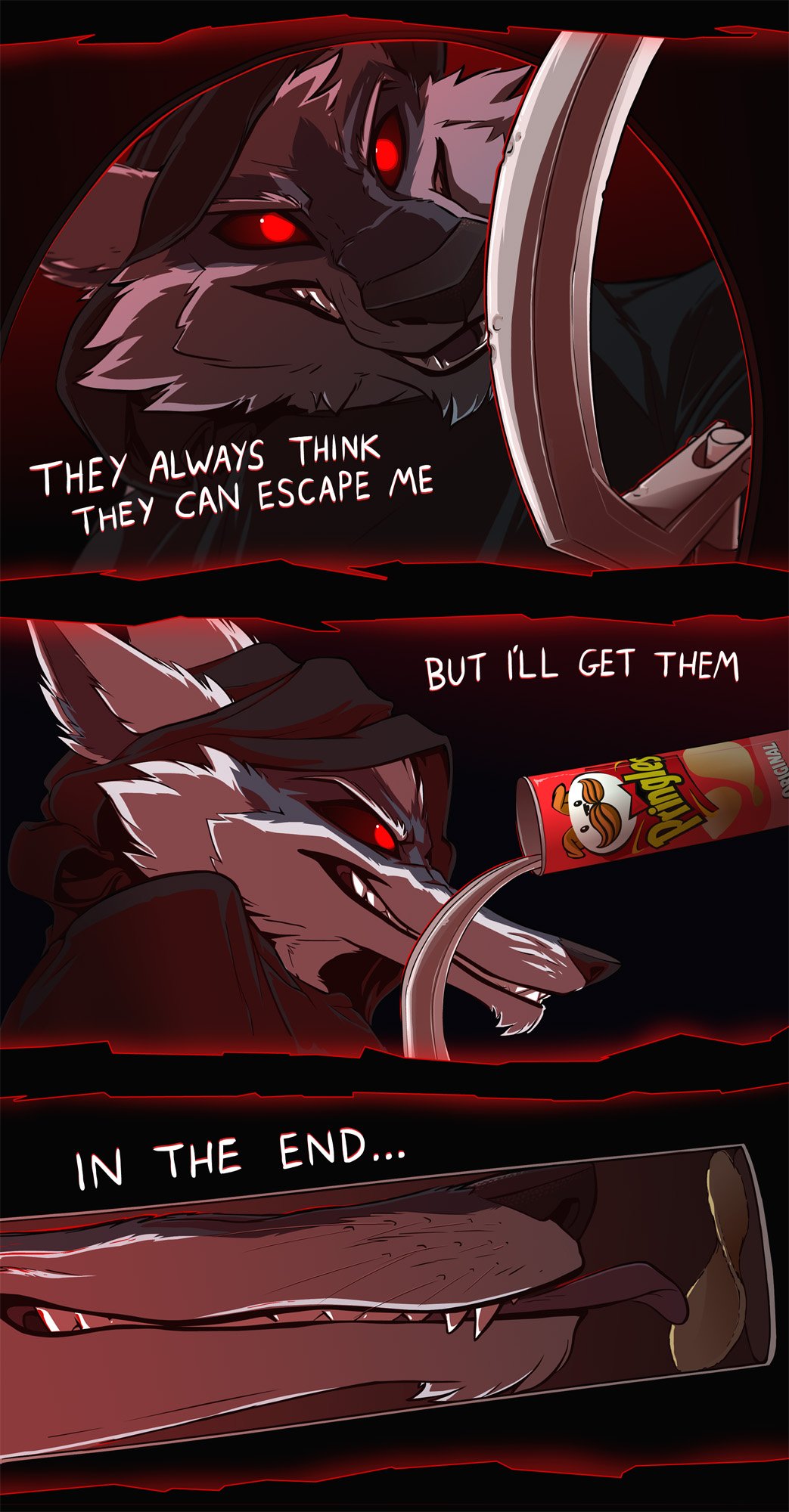Break the beef into smaller pieces first so the germs can't find it.
yote_zip
Just like real life you can also ignore the crime and say "that would take too much effort to solve".
ZFS and BTRFS could update their codebase to account for these (if they haven't already), but I agree that their extra mechanical parts worry me. I really don't care about speed - if you run enough HDDs in your RAID then you get enough speed by proxy. If you need better speeds then you should start looking into RAM/SSD-caching etc. I'd rather have better reliability than speed, because I hate spinning rust's short lifespan as-is.
You can either promote JPEG-XL or say yiff for the rest of your life. The choice is yours.
Dub's Mint Menus will give you a scrollable/searchable section instead, yes. It will look like this.
"If you don't wear Special Clothes around me I'm going to lose it."
When are we going to move past costuming for work?
I know it's not exactly the point of the post but I want to go on a tangent and note that it's 100% valid for kids to complain about school even if you have it harder. You should take their feelings seriously because their feelings are just as real to them as you hating your job is to you. When a toddler spills their juice and starts crying, those feelings are just as intense as yours, and you should respond accordingly instead of thinking "don't they know about the wars in the middle east?"
"Unlimited" is always a marketing gimmick, and they'll always contact you like "hey I noticed you're actually trying to use the thing you paid for you need to stop or we'll terminate you". Along the same lines: "Lifetime license" means 5 years, and "All-You-Can-Eat Pancakes means Four Pancakes."
This is a good call. I have seen them causing chaos in the wild often, though not always. I'm sure some of them are nice people, but one of the main problems with Hexbear is that they already have a huge established community whereas everyone else is a lot smaller, and they seem to engage in targeted manipulation of posts and comments, upvoting each other and downvoting others etc. Whenever anything regarding Hexbear comes up you will always see "Hexbear isn't so bad! they're just having fun!" as the highest-upvoted comment, and if you check who upvoted it it's 90 Hexbear users. I've seen it so often that I really don't feel that comfortable having them around manipulating political posts and who knows what else.
I can give you the summary:
-
NTFS: what the fuck is this still doing in the wild. Malware maybe?
-
FAT: legacy FS for the lowest common denominator. Not good in any objective sense, but sometimes you are forced to use it.
-
ReiserFS: No one knows what ReiserFS actually does all we know is that the developer killed his wife and went to prison
-
Ext4: Old, stable, solid, and fast (even faster if you turn off journaling at the expense of reliability), but it's missing some really nice modern features, like Copy-on-Write, snapshotting, and transparent compression
-
XFS: Ext4 for hipsters. Old, stable, fast, etc. There's a recent push to try to make this a cool FS again with e.g. Stratis and reflinking support, but I don't think it's going to be the future. Still a great FS, but if you want XFS you'll already know.
-
F2FS: Designed for optimal performance on flash storage, but generally it's not good enough at that job to warrant using it over something else that has more features or is more reliable. Supports transparent compression, but oddly enough it doesn't actually give you any extra free space when you compress. The compression is done only to reduce wear and tear on the cells.
-
ZFS: Gold standard FS, but incompatible licensing means it can't be in the Linux kernel by default. It's very stable, very fast, and likes to eat your RAM if you don't tell it not to. Transparent ZSTD compression can be enabled to compress and decompress your files as you write/read, saving a lot of space. Its Copy-on-Write nature is more stable than traditional in-place editing because it won't be vulnerable to power loss. As of OpenZFS 2.2 it also includes the reflinking feature, which will make file copies be instant within the same filesystem, reducing wear and tear. Notably if you're making home-use RAID5/6 arrays it can feel very inflexible because it won't let you add HDDs to your array on the fly (this was fixed on November 10th, 2023, but will not be released until OpenZFS 2.3 comes out). You'll need to put some extra money into your home NAS setup to begin to see this filesystem shine, e.g. sacrificing half your disks for fast mirrored vdevs, which also allow reasonable growth. Buying a ton of RAM and maybe even an L2ARC SSD cache will also prevent wear and tear on your HDDs because most of your file reads will come from caches instead of the slow disks. This FS is designed for large data centers, and it's really good at that.
-
BTRFS: ZFS for the rest of us. Contains a similar featureset to ZFS (Copy-on-Write, snapshots, transparent compression), but it's better integrated into the Linux ecosystem. It's generally worse in every other respect to ZFS, and it's not as stable or time-tested either. It famously contains a "write-hole" bug that means RAID5/6 have the potential to eat your data, and so those are not recommended to be used. If you're only considering a filesystem for a single drive (i.e. not a RAID), most of BTRFS's downsides don't matter. Many Linux distros are shipping with this FS as the default for the OS drive now, and it's more or less being championed as "the future".
-
BcacheFS: "The future v2". Not even stable yet, that's how you know it's good. Contains unlimited features and zero bugs, 100% reliability, etc. All the best software is theoretical. We'll see what happens when it's fully mainlined into the Linux kernel.
-
MergerFS: fuck it what if filesystems weren't even real. Transparently combine any other filesystems into a single logical filesystem. Usually used together with SnapRAID to make a more flexible home NAS RAID5/6 that can add or remove disks on the fly - this isn't possible under ZFS and BTRFS shouldn't be using RAID5/6 at all. Notably this configuration does not stripe data across disks, so even with an unmitigated disk failure you won't lose the whole array. Disk performance won't be as good as ZFS but flexibility and storage efficiency are probably a lot more important to a casual NAS owner.
So basically TLDR: BTRFS for home/OS use, MergerFS+SnapRAID backed by BTRFS disks for a budget home NAS, ZFS for a more expensive home NAS/server, and ZFS for enterprise.
I have not tried to use ZFS for home/OS but I'm guessing it's not a good idea - most of ZFS's advantages over BTRFS are regarding RAIDs, and poor Linux integration may cause headaches. Ext4/XFS is good for home/OS use if you have a real usecase, but otherwise BTRFS is generally just a better drop-in for most people these days. On HDDs you're probably going to want to use ZFS or BTRFS because the transparent compression and copy-on-write nature will make the transfer speed not matter as much. On super-fast SSDs (e.g. for home/OS or a games drive), BTRFS might end up being slightly slower than Ext4/XFS, but transparent compression and copy-on-write will also prevent a ton of wear and tear on the physical SSD, so it really depends on your usecase.












It has a very high opinion of itself.